How the new government departments respond to information requests
We know how the new departments of DExEU, DIT and BEIS are responding to Freedom of Information (FoI) requests
For the first time, we know how the new departments of DExEU, DIT and BEIS are responding to Freedom of Information (FoI) requests. Gavin Freeguard and Rob Adam say they are falling below the mark already.
The new Brexit-related departments receive few FoI requests...
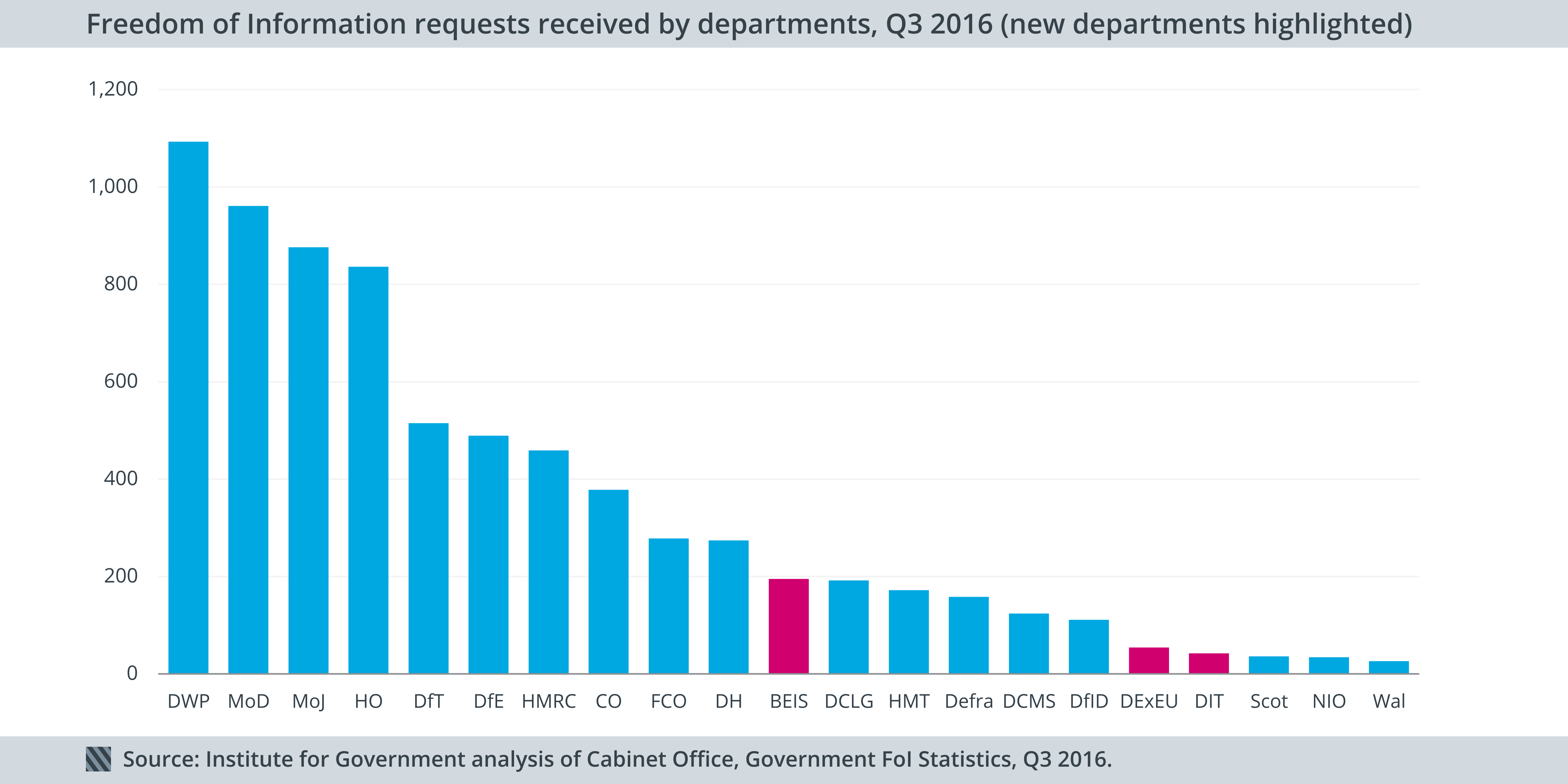
The new Brexit-related departments – for Exiting the European Union (DExEU), and International Trade (DIT) – received only 54 and 42 FOI requests respectively. In context, only the territorial offices (the Scotland, Wales and Northern Ireland Offices) traditionally receive such a low volume of requests.
The new Department for Business, Energy and Industrial Strategy (BEIS) received 195. Its predecessor departments, BIS and DECC, received 224 and 170 requests respectively in the previous quarter. (DWP, MoD, MoJ and HO received the most requests, as they usually do.)
…but the new departments are among the worst for answering on time.
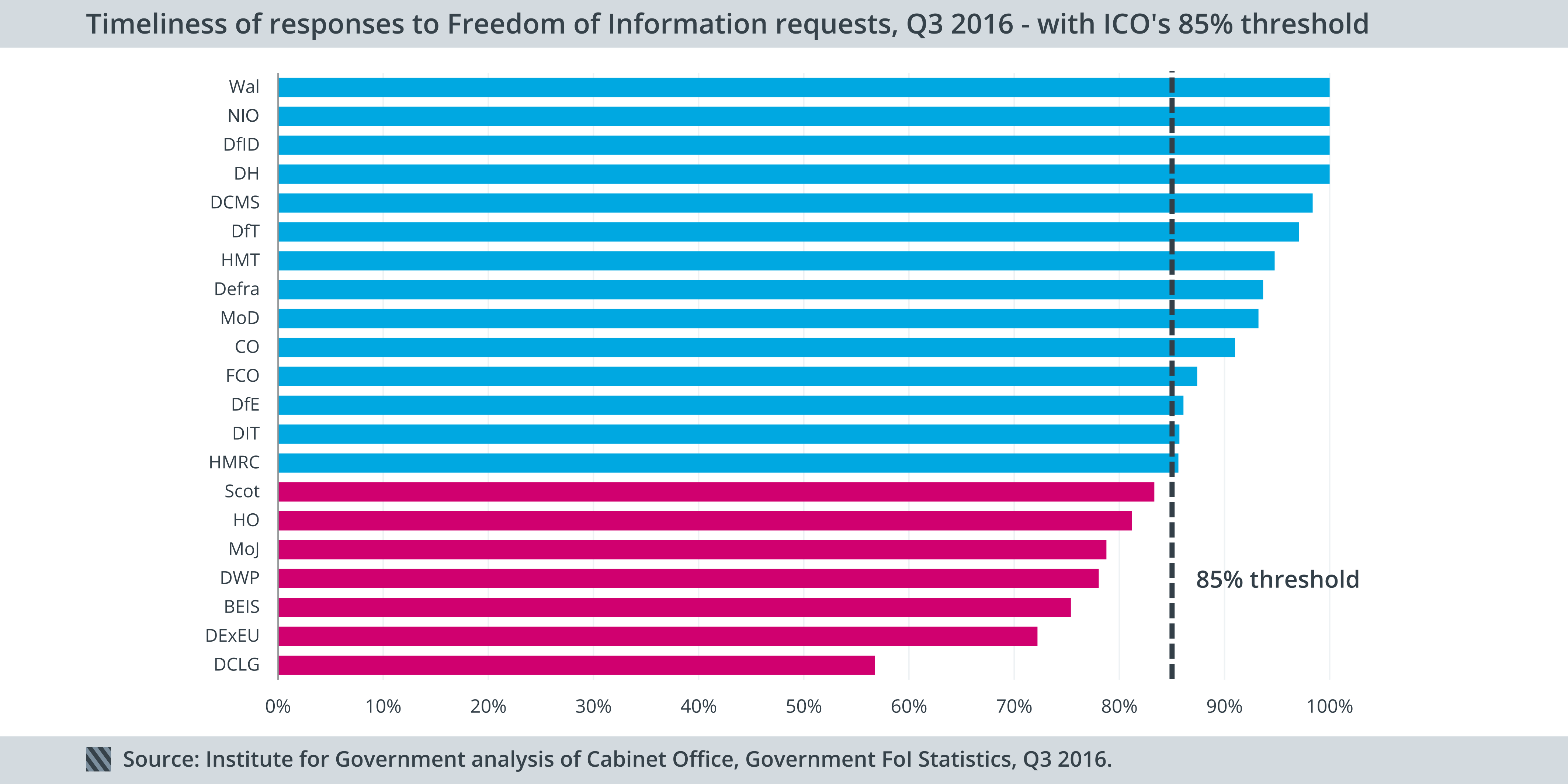
Despite a low number of requests, the new Brexit departments only replied to 72% (DExEU) and 86% (DIT) in time (within 20 days or with a permitted extension). This isn’t surprising given the challenges involved in setting up a new department, but it does underline the disruption to the day-to-day business of government that can be caused by machinery of government changes. More surprising is the poor performance of BEIS (75%): although also a new department, they have less of an excuse given they inherit FoI teams from DECC and BIS.
Both DExEU and BEIS fall below the 85% threshold, below which departments can be subject to special monitoring by the Information Commissioner. Five other departments – DCLG, DWP, MoJ, HO, and the Scotland Office – also did so. The Commissioner, Elizabeth Denham, reiterated her support for a tougher threshold at a recent event on FoI and noted one nameless Whitehall department was currently being audited (as well as calling for FoI to be extended to private companies providing public services and for government departments to have a ‘duty to document’ information).
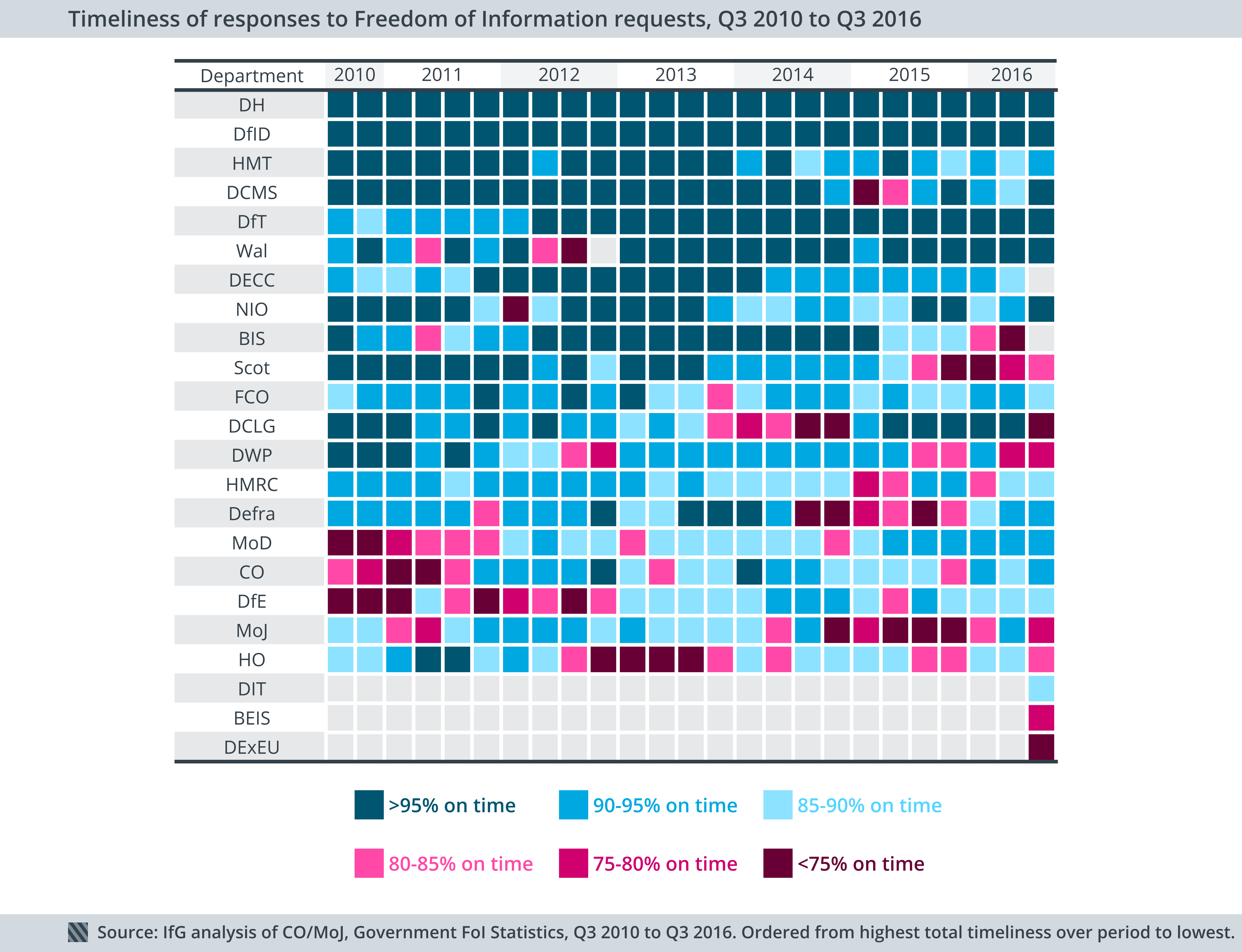
DCLG’s performance has dropped this quarter, having responded to more than 95% of requests on time in the previous five quarters. MoJ, meanwhile, has dipped below the threshold in eight of the last ten quarters, and the Scotland Office in all of the last five despite a low volume of requests (a pattern across other types of information requests).
DExEU and BEIS withhold information in full in response to two out of every five requests.
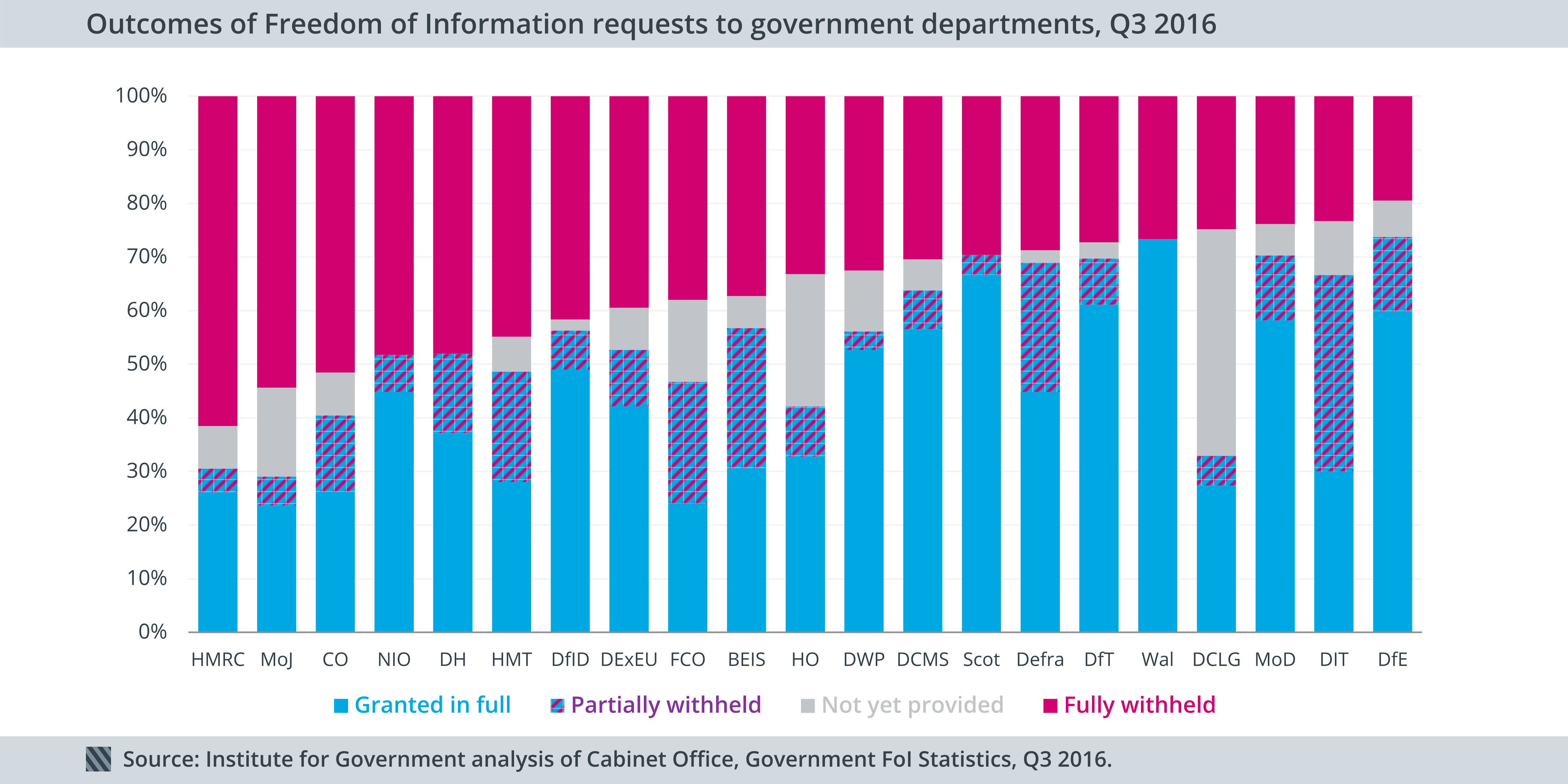
Although DExEU (39%) and BEIS (37%) withhold information in response to around two in every five requests they receive, they are still more open than a number of other departments. HMRC, MoJ and the Cabinet Office all fully withhold information more than half the time.
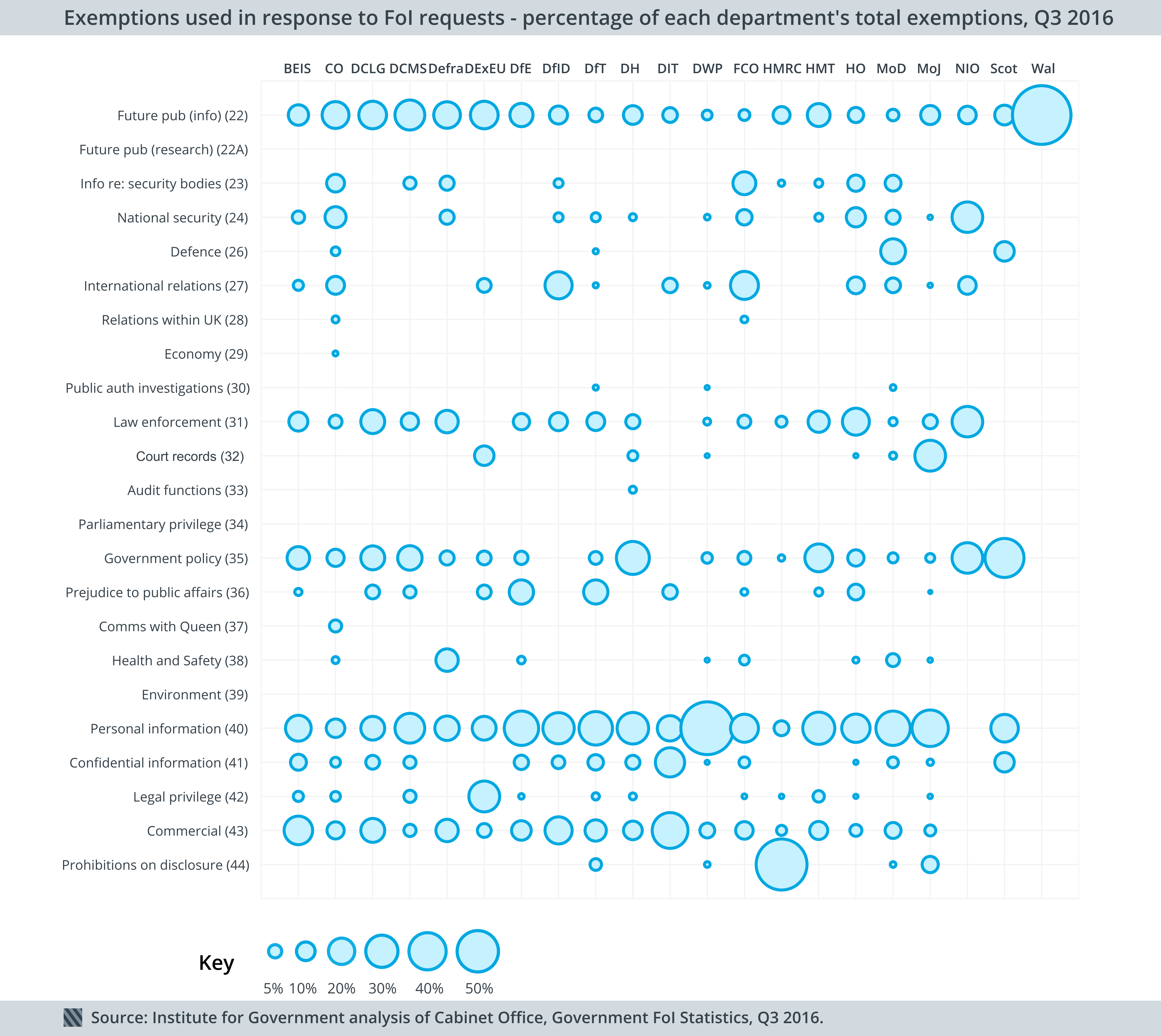
There may be good reasons why some departments withhold information and apply the various exemptions under the FoI Act. For example, looking at the new departments:
- BEIS and DIT both used the ‘commercial interests’ exemption, which protects trade secrets and anything that could prejudice someone’s commercial interests, more than any other.
- DExEU made more use of the ‘legal professional privilege’ exemption, which ‘protects confidential communications between lawyers and clients’, than any other, and used it more than any other department.
Responding to requests for information is an important part of a department’s business, and departments’ performance are a useful indicator of their administrative health. Based on this quarter, DExEU and BEIS in particular need to get better at responding on time, or risk special monitoring by the Information Commissioner.
- Topic
- Civil service
- Department
- Department for Exiting the European Union Department for International Trade Department for Business, Energy and Industrial Strategy
- Publisher
- Institute for Government